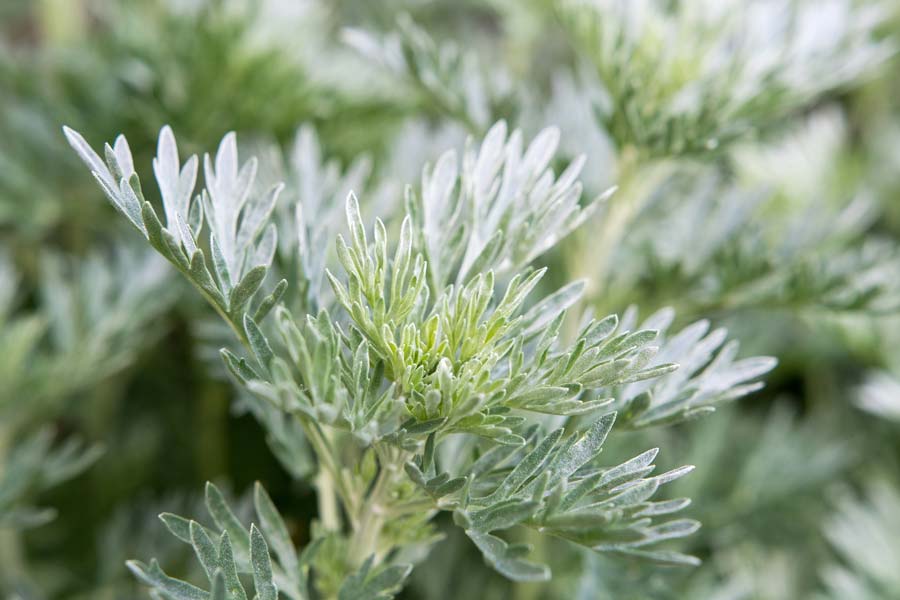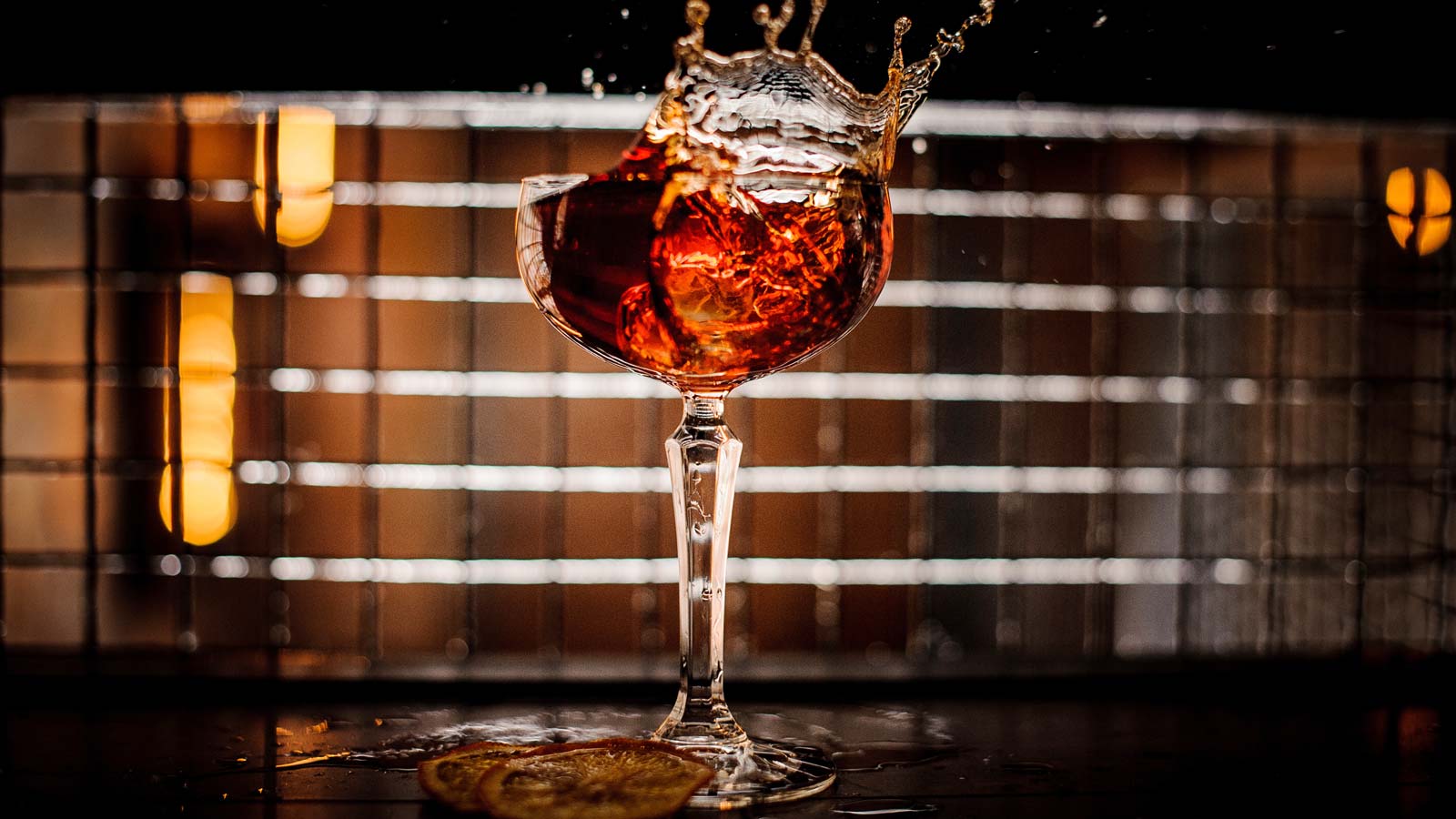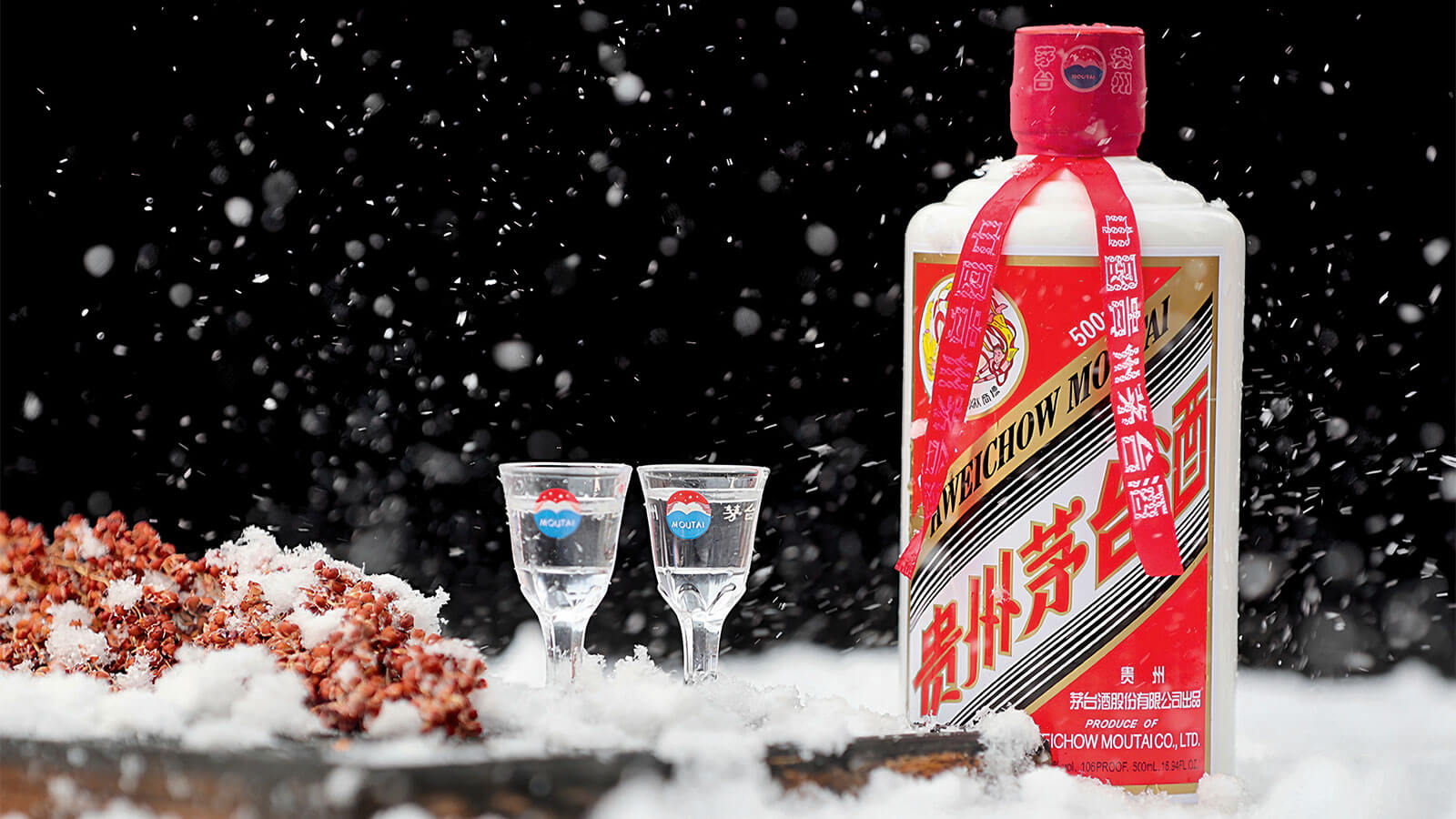Recently in Zurich's trendy district 5: It's Saturday night, a new bar is opening, the nightlife crowd meets for free drinks and appetisers in the former bistro of the RiffRaff cinema.
The restaurant is now called "Wermut". The two patrons Kaspar Fenkart (Sport Bar, Central Bar) and Marius Frehner (Gamper Restaurant and Bar), two local greats, are fully committed to the spiced wine, whose comeback has been expected for years, but has so far only been a topic of discussion among insiders.
Fenkart and Frehner drew inspiration for their restaurant on Neugasse from the "vermuteo", the Catalan aperitif culture that grew up around spiced wine in the 1950s. The rebirth of the vermuteo in Barcelona's nightlife scene began in recent years to compete with the boom in gin & tonic.
The two chefs of the "Wermut" have their own vermouth recipe produced for their new restaurant in Switzerland ("WERMUT", red and white, litre 28 francs). The product is served in a wine glass or infused with tonic; small dishes to pick from are served to set the mood for the more sophisticated cuisine at the back of the restaurant.
The success of the Fenkart / Frehner team proves them right; the Wermut quickly established itself as an aperitif location and the cuisine enjoys a good reputation.
New brands at the start
Vermouth has been around for a while. In Zurich, Markus Blattner's bar Old Crow has been a pioneer of the renewed vermouth culture; Blattner has always been a fan of the vermouth-influenced cocktail Americano and its variations and has many of them in his repertoire; the Old Crow's shelves are adorned with antique vermouth bottles.
Above all, however, revived or new labels from Italy have been attracting attention for some time (Carpano Anticha Formula, Mancino) and have been appearing on the shelves of well-stocked bars alongside the well-known Italians Cinzano and Martini for about four years.
Because vermouth can be made anywhere where wine grows, Germany is also coming up trumps with vermouth; the white Znaida from Berlin knows how to please with its freshness, the range from Belsazar is convincing with a Riesling edition, and the producers of Saarbrücken's Ferdinand's Gin have also expanded their range in the direction of vermouth.
I believe in the market for premium vermouth because there are many products that are just average and therefore it makes sense to stand out.
Stephan Lismond, Manufacturer Vermut BCN
Exciting brands come from Spain in particular. In the Zurich bar "Vier Tiere", there was recently a high-flyer from the Iberian peninsula to taste; Stephan Lismond, producer of the BCN gin from the Catalan wine-growing region of Priorat, showed his convincing "Vermut BCN", based on wine from white Grenache grapes, for which he uses the same regional botanicals that are also used in the gin.
"We also macerate in the same wine alcohol that gives the gin its flavour," says Lismond. "I believe in the market for premium vermouth because there are a lot of products that are just average, so it makes sense to stand out."
The Andalusian sherry producer Lustau delivers a quite excellent product with its white vermouth, with echoes of its best sherries; Gonzalez Byass also produces vermouth.
Switzerland also has new or revived vermouth labels in the form of Atala (red, white) from Valais and the Jsotta brand (Rosso, Bianco, Rosé) from Winterthur-based Lateltin.

How wormwood is made
As fortified wine, vermouth consists of a herbal extract prepared in alcohol, which is sweetened and fortified with wine. No distillation takes place; the competence of the producers is shown in the knowledge of the required maceration times and temperatures and the interaction of the botanicals.
When it comes to the composition of the herbal mixture for the so-called macerate, the manufacturers are quite free, but of course dried wormwood is as obligatory as juniper is to gin. Martini Bianco, the drink with which generations of young people got their first buzz, is the best-known exponent of this category, closely followed by Cinzano; standardised industrial products with little character but all the more sugar (around 160 g / litre).
Wormwood herb (Artemisia Absinthum) is one of the most important spice and medicinal plants of the Alpine region, already healer Hildegard von Bingen wrote about it more than 1000 years ago. The "Green Fairy" or absinthe is distilled from a macerate of wormwood.
Udo Pini writes in his "Gourmethandbuch" (Könemann Verlag): "From the power-aromatic mugwort plant and ancient medicinal herb, a drinkable, always rather bitter cure has been prepared from time immemorial, which has been sweetened, further spiced and coloured for centuries and still is today". There are different subspecies of Artemisia, which have different effects on the taste of the finished wormwood.
Where the custom comes from
The originator of the idea of brewing a "stomach-opening" fortified wine from pharmaceutical herbs is Antonio Benedetto Carpano, whose name is one of those who have not been on the scene for a long time, but is now celebrating success again as "Antica Formula" and is one of the first brands to benefit from the new trend towards boutique vermouths.
The category of fortified aperitif wines was created at the time to give dubious wine qualities a boost with bitter herbs and sugar.
They were based on old apothecary wines, which were taken for all kinds of ailments before real medicines were invented.
Vermouth embodies the culinary heritage of the Kingdom of Sardinia, which before the founding of Italy encompassed the French-Italian Alps as well as the island of Sardinia, where herbs and vines were plentiful and a growing middle class was inspired by the aristocratic savoir-vivre - vermouth wines served as an appetiser and an innocuous way to have some alcohol before the meal.
How do you enjoy vermouth?
Vermouth is tasted like wine. Advanced drinkers try to taste the grapes of the base wines, but it is fun to define the added spices and herbs. Vermouth is quite sugary and adults rarely drink too much of it; to reduce the sweetness, people like to dilute it with soda.
As with wines, it is exciting to compare different producers. Look for the nuance of the expression that the herbs find in the final product, for the pleasant flow, for a sweetness that is not exaggerated, for the fullness of the mouth and for the finish. Because standard qualities are aimed for, there are no differences between the vintages.
Vermouth in gastronomy
Up to now, the rather high price has stood in the way of enjoying vermouth in the bar from the customer's point of view. You usually get around 5 cl of drink for around 8 francs. If you consider what a bottle costs for the gastronomy (the gastro prices are also around 25 francs for more noble products), everyone can calculate that there are high margins here. Especially because the sweet wine is far too drinkable for a small glass not to be swallowed in two gulps.
This is probably the main obstacle to the triumph of vermouth in the bars. There are now some really great products. You can taste the wine cultures of their countries of origin in modern vermouths; even Martini and Cinzano launched premium products a few years ago and, in keeping with the trend, talk about the grape varieties used (while the herbal mixtures for the macerate remain secret).
However, the producers and brand ambassadors as well as the bartenders still have a lot of work ahead of them if they want to sell higher-priced vermouths one day instead of only using 2 cl of it for the occasional Negroni or Old Fashioned.

When asked what you could do with vermouth in the bar beyond the Negroni, Xu Kunming from the "Vier Tiere" bar in Zurich, where 9 different vermouths are served, says: "If you want to sell more vermouth, you should try highballs - drinks made with vermouth and a filler like tonic plus another ingredient like a bitter."
The model for Xu's tip can be experienced at Zurich's Cinchona bar in the 25 Hours Langstrasse hotel, where reasonably priced highballs with vermouth and tonic are served in tall, narrow glasses on ice scoops.
Guests like to have a second or even a third of these, because the alcohol content is not dangerously high and it is very easy for the bar staff to vary them: change the vermouth and tonic, add a new bitter and the newly invented highball is ready.
Also at the Cinchona bar (25Hours Langstrasse), an old idea from the fifties has been revived, namely Gin & It - quite simply two parts gin with one part vermouth, without the addition of Campari or anything similar (a few drops of a bitter essence are welcome, of course).
Gin & It is an excellent thing, because this drink is very conclusive in terms of taste - the sugar in the vermouth is diluted with alcohol and highlights the botanicals in the gin, and the herbs in the vermouth come into their own beautifully thanks to the alcohol.
The boom in slow motion
All in all, we can say that vermouth is slowly gaining ground: Vermouth is slowly gaining ground and is likely to become even more of a topic among connoisseurs in the coming years - the premium products are characterised by a nice balance of sweetness and bitter notes, which makes them a good topic of conversation.
And products that guests like to talk about and whose story lends itself to being told: These are precisely the ones to watch.
Overview Vermouth in Switzerland (excerpt)
| Product | Cat. | Vol.% | Origin |
|---|---|---|---|
| Alata Sàrl | |||
| Alata Blanc | 16 | Switzerland | |
| Alata Rouge | 16 | Switzerland | |
| Bacardi-Martini (Switzerland) Ltd. | |||
| Martini bianco | 15 | Italy | |
| Martini rosso | 15 | Italy | |
| Martini Extra Dry | 18 | Italy | |
| Martini Rosato | 15 | Italy | |
| Martini Fiero | 14.9 | Italy | |
| Martini Riserva Speciale Ambrato | 18 | Italy | |
| Martini Riserva Speciale Rubino | 18 | Italy | |
| Noilly Prat | 18 | France | |
| Best Taste Trading GmbH | |||
| Lustau Presumption Blanco | 15 | Spain | |
| Lustau Vermut Rojo | 15 | Spain | |
| Charles Hofer SA | |||
| Dolin Le Vermouth Blanc | 16 | France | |
| Dolin Le Vermouth Rouge | 16 | France | |
| Dolin Le Vermouth Dry | 17.5 | France | |
| Ciudad Condal Ltd. | |||
| Presumption BCN | 18 | Spain | |
| BCN Mut - Negra Barrel Aged | 18 | Spain | |
| CAMPARI Switzerland AG | |||
| Cinzano 1757 Bianco | 16 | Italy | |
| Cinzano 1757 Rosso | 16 | Italy | |
| Cinzano Bianco | 15 | Italy | |
| Cinzano Rosso | 15 | Italy | |
| Dettling & Marmot Inc. | |||
| Carpano Antica Formula | 16.5 | Italy | |
| Punt e Mes | 16 | Italy | |
| Diageo Switzerland SA | |||
| Belsazar Vermouth White | 18 | Germany | |
| Belsazar Vermouth Red | 18 | Germany | |
| Belsazar Vermouth Dry | 19 | Germany | |
| Belsazar Vermouth Rosé | 17.5 | Germany | |
| DIWISA Distillerie Willisau SA | |||
| Mancino Vermouth Bianco | 16 | Italy | |
| Mancino Vermouth Rosso | 16 | Italy | |
| Mancino Vermouth Secco | 18 | Italy | |
| Gents Ltd. | |||
| Vermouth de Gents | 18.5 | Switzerland | |
| Haecky Import AG | |||
| Gonzales Byass La Copa Blanco Vermouth | 15 | Spain | |
| Gonzales Byass La Copa Rojo Vermouth | 15.5 | Spain | |
| Humbel Speciality Distillery AG | |||
| Rovero Vermouth di Torino | 16 | Italy | |
| Vermouth Bianco L'Osteria | 16 | Italy | |
| Lateltin AG | |||
| Jsotta Vermouth Bianco | 17 | Switzerland | |
| Jsotta Vermouth Rosso | 17 | Switzerland | |
| Jsotta Vermouth Rosé | 17 | Switzerland | |
| Matter-Luginbühl AG | |||
| Formula Oliver Matter Vermouth Bianco | 18 | Switzerland | |
| Formula Oliver Matter Vermouth Rosso | 18 | Switzerland | |
| Formula Oliver Matter Vermouth Dry | 18 | Switzerland | |
| Paul Ullrich AG | |||
| Cocchi Vermouth di Torino | 16 | Italy | |
| Cocchi Vermouth Amaro di Torino | 16 | Italy | |
| Cocchi Vermouth di Torino Riserva "La Venaria Reale | 18 | Italy | |
| del Professore Vermouth Classico | 18 | Italy | |
| del Professore Vermouth Rosso | 18 | Italy | |
| del Professore Vermouth Islay Whisky Cask Finish | 18.8 | Italy | |
| del Professore Vermouth Jamaican Rum Cask Finish | 18 | Italy | |
| del Professore Vermouth Vaniglia | 18 | Italy | |
| Vermouth de Forcalquier | 18 | France | |
| Other fortified and aromatised wines | |||
| Charles Hofer SA | |||
| Bonal Gentiane - Quina | 16 | Italy | |
| Pernod Ricard Swiss AG | |||
| Byrrh | 18 | France | Lillet Blanc | 18 | France | Lillet Rosé | 18 | France |
| Matter-Luginbühl AG | |||
| Kina L'Aero d'Or | 18 | Switzerland |





